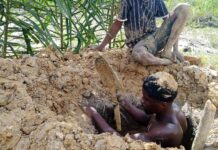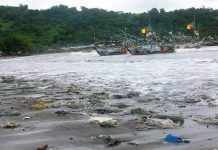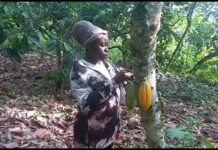
by Atâyi Babs
Small scale farmers in the north-eastern town of Gassol, Nigeria are on the verge of increasing the ranks of those who subsist in the relentless cycle of poverty as their source of daily sustenance is currently the subject of a land grabbing scheme backed by the G-8’s New Alliance for Food Security and Nutrition.
Investigations show that that the farmers are being forced off the land they have farmed for generations to make way for a US firm, Dominion Farms to establish a 30,000 hectare rice plantation.
Land containing plots held by thousands of farmers and a publicly funded irrigation system was handed over to Dominion by the Nigerian authorities yet local farmers were not consulted about the deal and are yet to hear of any compensation or resettlement plan.
Dominion Farm’s investments in Nigeria are just some of those pledged as part of the G8’s New Alliance for Food Security and Nutrition. Launched in 2012, the programme draws on billions of pounds in G8 aid to push for pro-corporate policy reforms across 10 African states to attract world’s biggest agribusinesses.
A new wave of colonialism
Like other African states, Nigeria is now changing its laws on land, seed and fertilizer markets and trade rules that effectively hand control of local food systems to corporate giants, including Unilever, Syngenta and Dominion. It’s why nearly 100 African campaign groups have branded the initiative ‘a new wave of colonialism’. Britain alone has pledged $210 million in aid to Nigeria’s New Alliance projects.
Further investigations revealed that the MoU between the Federal Ministry of Agriculture and Rural Development, the Taraba State Government and Dominion Farms Ltd was signed without proper consultations with the affected communities. Those consultations that did take place involved mainly government officials.
The information that local people received about the project was insufficient and was presented in a partial manner in favour of the project. Local farmers were never asked if they agreed to the project or under what terms they would accept the project, and were thus kept out of a decision that has major impacts on their lives.
The agreement was also signed without a social and environmental impact assessment. The agreement did not include a resettlement plan for the affected farmers. Pledges that were made during the process of allocating lands to Dominion Farms to improve the livelihood of the local farmers of Gassol have so far not transpired. No roads have been constructed, no hospitals, training centres or schools have been built, and locals have not been hired by the company.
Families who have been farming and living for generations on the lands acquired by Dominion Farms are upset and disillusioned. They say the project will breach their right to adequate food and livelihoods, and their right to access the lands. They consider it a forced eviction without proper consultation and compensation.
Landgrabbing for agribusinesses
Over the past three years, the Nigerian government’s Federal Ministry of Agriculture and Rural Development and the Federal Ministry of Investment have sought to increase foreign direct investment in agriculture as a strategy to increase national food production. Through this policy, vast tracts of agricultural lands have been identified by the government for large scale projects by foreign companies. This increases the risk of land grabbing, a process whereby local communities are displaced from their land and lose their ability to grow food and their livelihoods.
With the New Alliance and its corporate investors under fire for failing to provide evidence of its impact on food security and poverty reduction nearly three years after its launch, British campaigners and MPs are demanding that UK aids protect communities’ food sovereignty instead of backing corporate profit.
This week, Labour MP Diane Abbott called on Secretary for International Development Justine Greening to take heed of Gassol’s farmers. ‘It is alarming that farmers in Taraba State, Nigeria, without having been consulted or compensated, are being forced from their land to make way for large-scale land investment by a multinational company,’ said Abbott. ‘Allowing local populations to keep control over their land and seeds is a means towards sustainable development and avoids profit being syphoned off by large multinationals.’
No stranger to controversies
G8 leaders would no doubt like their ‘corporate partners’ to be seen as a beacon of responsible investment across Africa. Yet, like other New Alliance investors, Dominion is no stranger to controversy.
Registered in Kenya as Dominion Farms Limited, the company’s headquarters is in Oklahoma, US. US-Canadian businessman Calvin Burgess owns majority as part of his “Dominion Group of Companies”.
The company operates a controversial rice farm operation in the Yala Swamp area of Western Kenya that local farmers say has resulted in the loss of their lands and livelihoods, and grave social, environmental and health impacts on the affected communities.
The company is operating in Nigeria through a subsidiary, Dominion Rice & Integrated Farms Limited. Dominion’s activities in Nigeria and Taraba State are relatively new. In 2012, the company began a process to establish a large rice farm project in the Northern Nigerian state of Taraba. The company signed a MOU with the Federal Government of Nigeria represented by the Federal Ministry of Agriculture and Rural Development (FMARD) and the Taraba State Government.




















